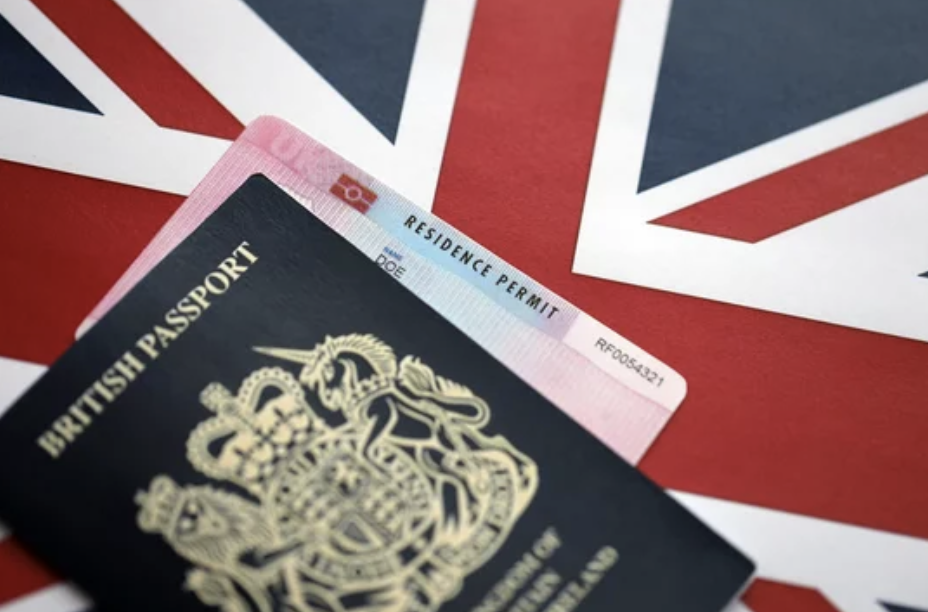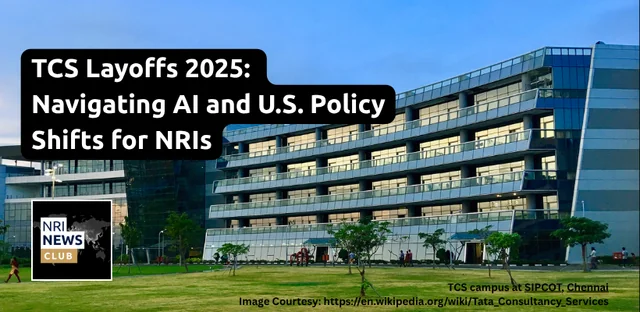The United Kingdom, a historic hub for global talent and diversity, is undergoing a seismic shift in its immigration landscape in 2025. With the Labour government’s new policies, outlined in the “Restoring Control over the Immigration System” white paper, the UK is tightening visa regulations, cracking down on asylum claims, and reshaping pathways for students, workers, and families. These changes, driven by political pressure to reduce net migration, affect everyone from international students to skilled professionals and asylum seekers. This article explores the evolving policies, visa processes, cultural adaptation challenges, and personal stories of immigrants navigating this new reality, offering practical guidance for those seeking to call the UK home.
UK Immigration Policy Overhaul in 2025
In May 2025, the UK Home Office unveiled its ambitious immigration reforms, aiming to create a “controlled, selective, and fair” system. The white paper emphasizes reducing net migration, prioritizing domestic workforce development, and ensuring migrants contribute economically and culturally. Key changes include higher salary thresholds for Skilled Worker visas, stricter English language requirements, and a longer residency period for permanent settlement. The government projects these measures could reduce annual net migration by 39,000 by 2029. These reforms reflect a delicate balance between addressing labor shortages in sectors like healthcare and tech while responding to public concerns about immigration levels.
(The Home Office has also targeted irregular migration, particularly asylum claims, with a clampdown on undocumented entries. In 2024, over 30,000 asylum seekers arrived via small boats across the English Channel, prompting stricter enforcement and penalties, including automatic citizenship bans for those entering illegally, effective February 2025. This marks a significant hardening of policy, raising concerns among human rights advocates about access to fair asylum processes.
(“The UK must balance compassion with control. We welcome those who contribute, but illegal entry undermines our system,” said Home Secretary Yvette Cooper in a July 2025 address.
Visa Processes and Legal Pathways
Navigating the UK’s visa system in 2025 requires careful planning, as requirements have become more stringent. The Skilled Worker visa, a cornerstone for professionals, now mandates a degree-level qualification for most roles, eliminating over 180 medium-skilled job types previously eligible. The minimum salary threshold has risen from £38,700 to £41,700, with shortage occupations and new entrants facing a threshold of £33,400. Employers must also demonstrate efforts to recruit domestically, and sponsorship costs, like the Immigration Skills Charge, can no longer be passed to workers. Applicants should verify job eligibility early to avoid rejections.
(International students face significant hurdles, with the Home Office tightening Graduate visa durations and introducing a levy on university income from foreign student fees. The Graduate visa, allowing post-study work, has been cut from two years to 18 months, and stricter sponsorship rules require universities to prove compliance with immigration regulations. Practical tip: Students should secure job offers early during their visa period and explore the Global Talent visa, which offers pathways for exceptional individuals in tech, science, or arts.
(Asylum seekers must now navigate a more rigorous process, with accelerated decision timelines and a “good character” requirement for citizenship that penalizes illegal entry. The EU Settlement Scheme (EUSS) sees automatic conversions from pre-settled to settled status starting January 2025, easing transitions for eligible EU nationals. Seek legal advice early to ensure compliance, especially for complex cases involving family reunification or asylum claims.
(Challenges of Immigration in 2025
The tightened policies create significant challenges for immigrants. For skilled workers, the higher salary thresholds exclude many entry-level roles, particularly in healthcare and social care, where no overseas recruitment is allowed unless employers prove domestic hiring attempts. This has led to labor shortages, with the NHS reporting a 15% vacancy rate in nursing roles in 2024. Immigrants already in the UK on visas must meet new thresholds upon renewal, risking deportation if their salaries fall short. Regularly review contract terms to ensure compliance with evolving rules.
(Students face cultural and financial pressures. The cost of studying in the UK, coupled with limited post-study work opportunities, has deterred some applicants. In 2024, international student applications dropped by 8%, with Indian and Nigerian students citing visa uncertainties. Budget carefully and explore scholarships, as living costs in cities like London can exceed £1,500 monthly. Asylum seekers, meanwhile, face detention risks and prolonged uncertainty, with processing times averaging 12–18 months. Connect with NGOs like the Refugee Council for support during this period.
(“I arrived from Syria in 2023, hoping for safety,” shares Ahmad, a 29-year-old asylum seeker. “The wait is exhausting, and the new rules make me fear I’ll never settle here.”
Success Stories of Resilience
Despite challenges, many immigrants thrive in the UK, contributing to its cultural and economic fabric. Take Priya, a 32-year-old software engineer from Bangalore, who arrived on a Skilled Worker visa in 2022. After navigating the points-based system, she secured a role at a London tech firm. “The visa process was daunting, but I prepared meticulously—certified documents, English tests, and a strong job offer,” she says. Her tip: “Build a network early. LinkedIn and industry events helped me land my job.” Priya now mentors other Indian professionals, emphasizing resilience and preparation.
Similarly, Chukwudi, a Nigerian nurse, overcame initial rejections to join the NHS through a shortage occupation visa in 2023. “The language test was tough, but I practiced daily with online resources,” he recalls. His success highlights the importance of meeting English proficiency standards, now raised to B2 level for most visas. Chukwudi’s story underscores how determination and compliance can open doors, even as rules tighten. Practical tip: Use free resources like Duolingo or IELTS practice apps to prepare for language tests.
(“The UK gave me a chance to rebuild my life,” says Chukwudi. “But you must respect the system and keep learning.”
Cultural Integration and Lifestyle Adjustments
Adapting to UK culture can be both exciting and challenging. The UK’s multicultural cities like London and Manchester offer vibrant communities, but rural areas may feel isolating for newcomers. Language barriers remain a key hurdle, with 25% of immigrants reporting difficulties in daily interactions, according to a 2024 Home Office survey. Join local language classes offered by community centers or apps like Meetup to build confidence and connections.
Social norms, such as punctuality and reserved politeness, often surprise immigrants. Maria, a 27-year-old student from Brazil, shares, “I was used to warm, open greetings in Rio. Here, people are polite but distant at first.” She joined a university cultural society, which helped her form friendships and understand British humor. Practical tip: Engage in community activities—volunteering, sports clubs, or cultural festivals—to build a support network. Food is another adjustment, with staples like fish and chips or Sunday roasts differing from many immigrants’ cuisines. Exploring local markets or cooking classes can bridge this gap.
Workplace culture also demands adaptation. The UK values direct communication and professionalism, which may contrast with hierarchical norms in some countries. Observe and ask questions to align with expectations, and seek mentorship to navigate workplace dynamics. For families, enrolling children in schools early and attending parent-teacher events fosters integration. Check school application deadlines, as they vary by region and can close as early as January for the next academic year.
Legal Guidance and Staying Compliant
Compliance is critical in 2025, with the Home Office introducing severe penalties for violations. Employers face licence revocation and fines for breaching sponsorship rules, while immigrants risk visa cancellations for non-compliance. The new Fair Work Enforcement Body, launched in July 2025, can suspend or ban sponsors for employment law breaches, impacting thousands of visa holders. Always verify your sponsor’s licence status before accepting a job offer.
(The rollout of eVisas and the Electronic Travel Authorisation (ETA) system continues, but technical glitches have caused delays. Monitor updates on the Home Office website and apply early to avoid travel disruptions. For citizenship, the 10-year settlement rule and revised Life in the UK Test demand thorough preparation. Use official study guides and practice tests to ensure success. Legal aid organizations like Citizens Advice can assist with applications, especially for low-income migrants.
(“One mistake can jeopardize your status,” warns immigration solicitor Amar Ali. “Always double-check documents and seek professional advice.”
Looking Ahead: Opportunities Amid Change
While 2025’s reforms pose challenges, opportunities remain for those who prepare. The Global Talent and High Potential Individual visas offer pathways for exceptional candidates, particularly in tech and academia. The UK’s aging population ensures ongoing demand for healthcare professionals, despite restrictions. Immigrants can also leverage the Earned Settlement scheme, which rewards significant economic or societal contributions with earlier permanent residency. Document achievements, such as patents, publications, or community leadership, to strengthen applications.
(Personal stories like those of Priya, Chukwudi, and Maria highlight the UK’s enduring appeal as a land of opportunity, tempered by the need for resilience and adaptability. As policies evolve, staying informed and proactive is essential. Join online forums like Expats in UK on Facebook or follow Home Office updates on X for real-time insights. The UK’s immigration system may be stricter, but with preparation, it remains navigable for those committed to building a new life.
















0 Comments